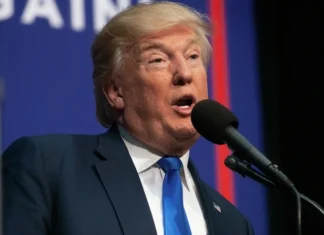The High Court has definitively ruled to exclude several pieces of evidence collected by the National Anticorruption Directorate (DNA) with the assistance of the Romanian Intelligence Service (SRI) under national security warrants in the Tel Drum case involving Liviu Dragnea. The former leader of the Social Democratic Party (PSD) has been indicted alongside the Tel Drum company and other individuals for forming an organized criminal group, abuse of office, and fraud involving European funds. He is accused of causing damages amounting to nearly 20 million euros to the national budget and the European Union.
This decision from the court significantly impacts the ongoing legal proceedings, which have been under preliminary consideration since 2022. The exclusion of crucial evidence means that the prosecution may face considerable challenges in substantiating its case against Dragnea and the co-defendants. The court’s ruling highlights the ongoing scrutiny of the methodologies employed by authorities in high-profile corruption cases, especially regarding the use of national security protocols to gather evidence.
Dragnea’s indictment stems from allegations that he led a network aimed at defrauding public funds. The primary accusations involve misappropriating European Union resources through the manipulation of contracts awarded to Tel Drum, a company closely associated with him. Prosecutors argue that the operations were designed to siphon off money from various projects and that Dragnea, in his capacity as both a political leader and an influential businessman, orchestrated these activities to benefit personally and financially.
The Tel Drum affair has been a focal point of political controversy in Romania, stirring up debates around corruption, governance, and the integrity of public institutions. Dragnea’s political career has been deeply affected by these allegations; he has faced mounting pressure from political opponents and civil society groups demanding accountability for corruption and misconduct.
The court’s decision to exclude key evidence raises questions about the efficacy of current legal practices and the balance between national security interests and ensuring a fair trial. It also underscores the potential pitfalls associated with the reliance on intelligence services in prosecuting corruption cases. Critics have argued that such practices risk undermining the integrity of legal processes and the rights of defendants.
Legal experts suggest that this ruling may set a precedent that could influence future cases involving similar circumstances where national security warrants are used to gather evidence against high-profile defendants. While the prosecution will have to navigate the implications of this decision, defense lawyers may seize upon it to argue that the case is significantly weakened due to the absence of critical proof.
Overall, the implications of the High Court’s ruling in the Tel Drum case could reverberate through Romania’s judicial system, affecting not only this particular trial but also future corruption cases. The ongoing challenges in addressing corruption at high levels of government highlight the difficulties faced by the judiciary in balancing rigorous enforcement of the law with the rights of individuals. As public scrutiny remains high, the outcome of this case will be closely monitored, reflecting broader societal concerns about justice, accountability, and governance in Romania.






